Is there any middle ground in the pipeline and carbon price debate?
August 30, 2018
Two of the more contentious issues in Canadian politics, issues that may play an important role in the next federal election, are the Trans Mountain Pipeline and the idea of putting a price on carbon pollution. We recently polled Canadians to see how opinion is shaping up on these issues now.
While the future of the Trans Mountain project faces a new element of uncertainty given the Federal court decision (August 30), political parties may find it useful to bear in mind where public opinion is on the question.
With that in mind, here’s what we found:
The TMX pipeline has not turned out, to this point anyway, to be galvanizing opinion to the extent that might have been expected. Across Canada 34% favour the project, 20% oppose it, but more people (46%) said they had no strong views.
In BC, we find 33% support, 28% oppose, and again, a plurality indicating no strong views. Albertans, are more preoccupied with the issue, and two out of three Albertans support the project. If you remove the two provinces most directly affected, the picture for the rest of the country is 29% for, 20% against and 51% with no strong views.

Even within the context of partisan politics, the TMX pipe has not become overly heated. The Conservative have put considerable focus on their support for the pipeline. Meanwhile a fairly slim majority 53% of Conservative voters support the project and a third have no strong views.
New Democrats have been vocal and persistent in their opposition to the project. But among NDP voters, only 33% oppose the TMX pipeline. Among Liberals, 34% support, 18% oppose, and the rest have no strong views.
These numbers call into question any analysis which suggests that the pipeline has become a galvanizing political question on a broader level, although undoubtedly there may be some ridings where opinions are more heated and divided. These numbers also suggest that the decision by the federal government to buy the pipeline has also not had a major impact on public opinion, one way or the other.
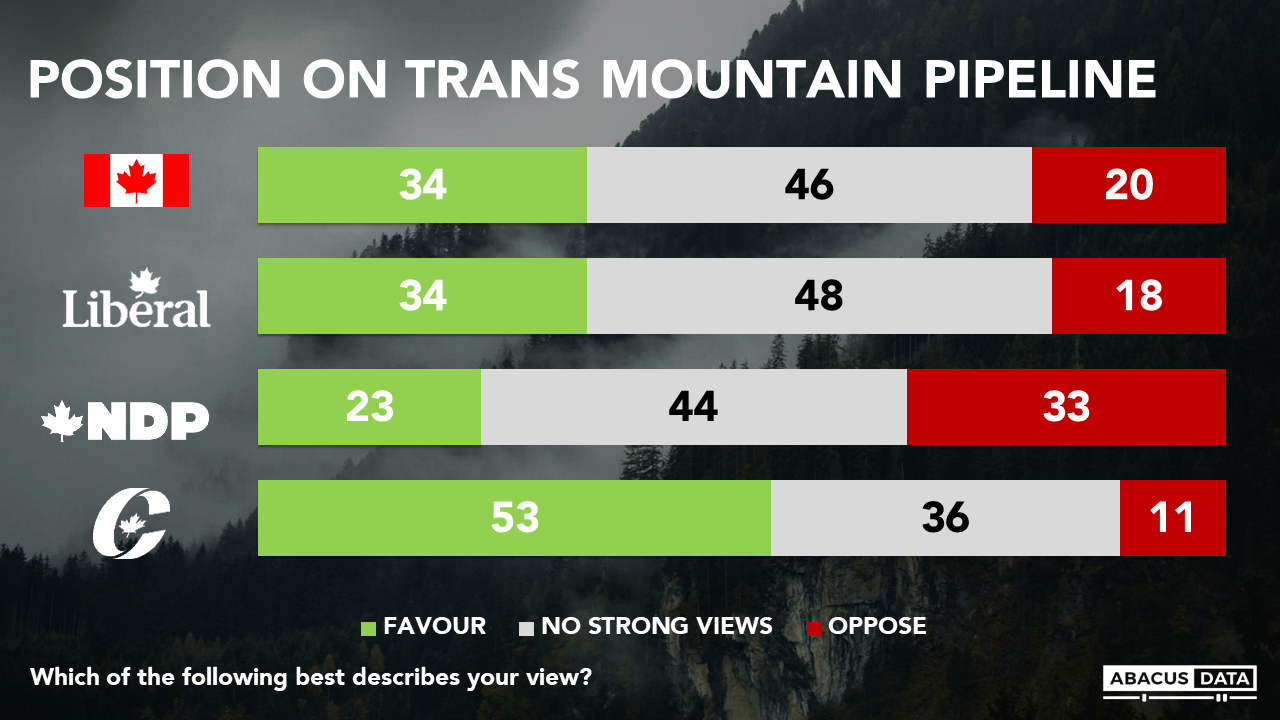
Turning to the federal carbon tax, opinion is more formed, by 15 points. Today, 34% support the idea, 35% oppose and 31% have no strong views. Quebecers are the most supportive (43%) while Alberta is at the opposite end of that spectrum with 49% opposition.
Across party lines, most Conservative voters (63%) oppose a carbon tax while 16% favour it and 22% don’t have strong views. Among Liberal and NDP voters, a plurality support carbon pricing while about one in five are opposed to it.
Taken together these numbers suggest enthusiasm for a carbon tax is limited – people rarely enthuse about a new tax. At the same time opposition to the idea is also perhaps less widespread than might be imagined, given the strenuous opposition mounted by critics of the idea.

Vigorous opposition to the carbon price often comes from those who are most adamantly in favour of the pipeline. The reverse is true as well: that some stakeholders are passionately in favour of a pricing carbon pollution and stopping new pipelines.

We decided to see how many Canadians hold those binary views (price carbon/no pipe vs build pipe/no price on carbon.)
Just 18% of Canadians are pro-pipeline and anti-carbon price. Just 11% are pro carbon price and anti-pipeline. The remaining 71% are less entrenched.
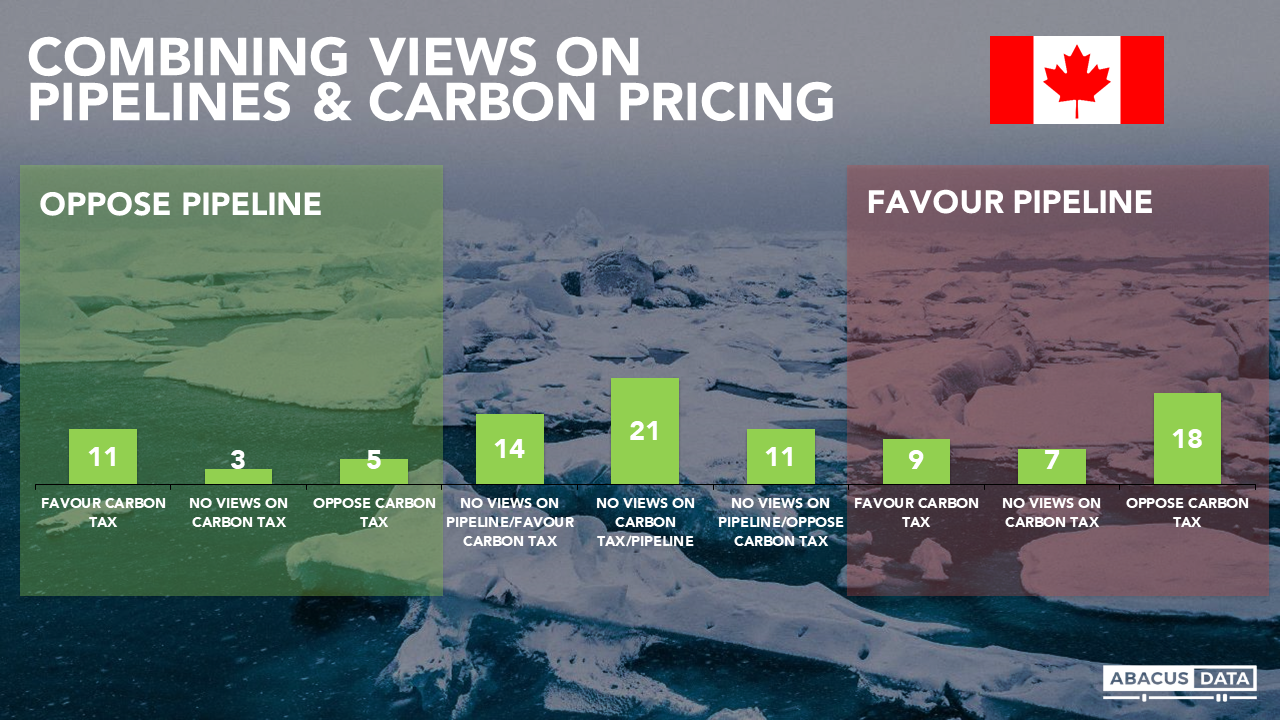
The chart below highlights the positions of the Conservative and New Democratic parties, to underscore the finding that compared to these partisan arguments, most Canadians reveal a mixture of nuance, balance, and in some cases, indifference to these choices. As an example, 25% of Canadians have a position on carbon pricing and yet don’t care much about the pipeline.
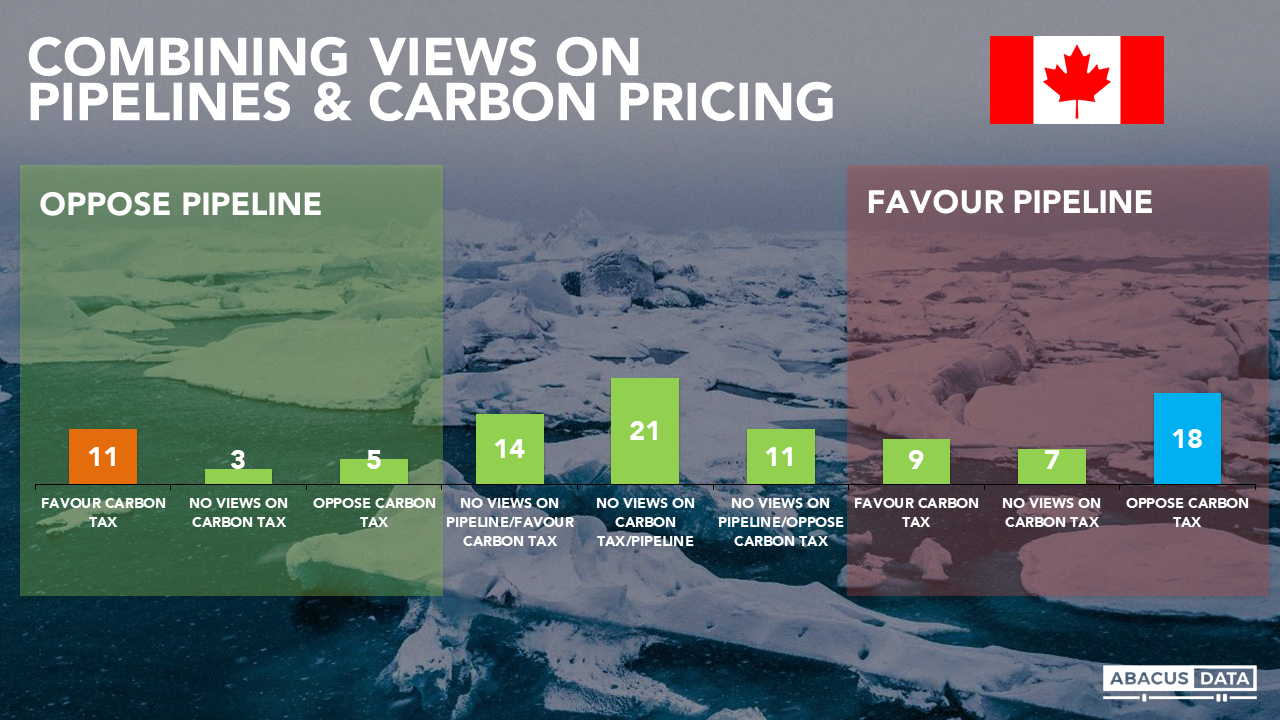
We tested the appeal of three alternatives: i) carbon priced and no pipeline ii) pipeline and no carbon price, and iii) the federal approach of more pipeline capacity and a carbon price. Just 22% chose the anti-oil option, 32% the pro-oil option, while 46% supported the middle ground.

The transition approach was supported by 52% of Liberal voters, 50% of NDP voters, and 32% of Conservative voters, and preferred by a plurality in BC (46%) Alberta (46%) and Ontario (48%).
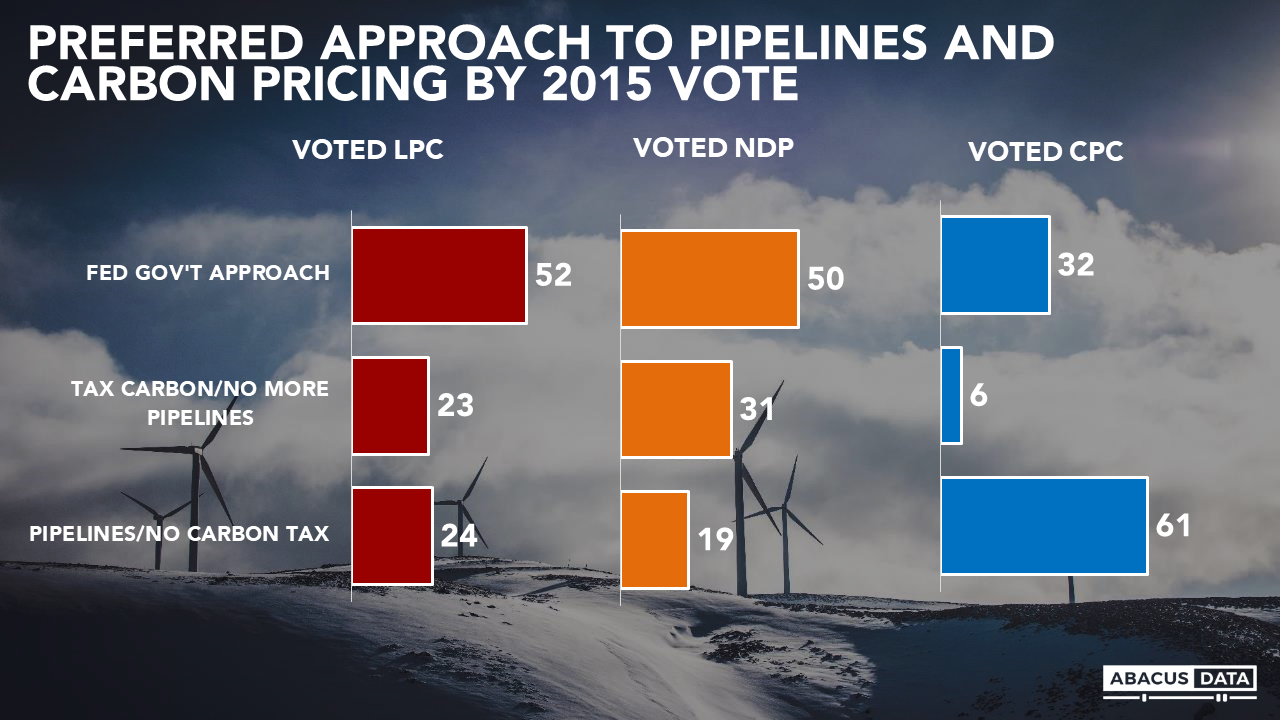

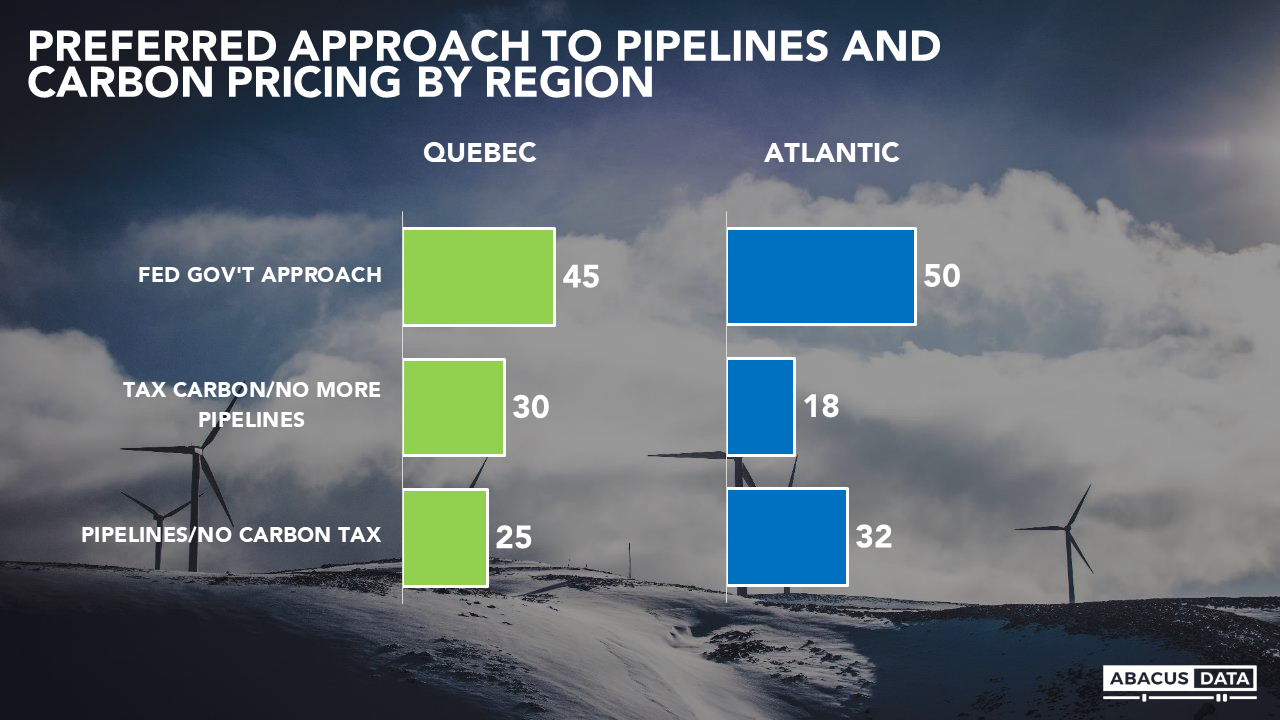
UPSHOT
According to Bruce Anderson:
“These results reveal several things. The level of public engagement on carbon pricing and the TMX pipeline is higher than on some other issues, but a lot of people who do not have strong or dogmatic views on either issue.
Second, some of those who want a pipeline aren’t so pro-oil that they are dead set against a carbon price, and some of those who want a carbon price aren’t dead set against a pipeline. The binary (pro or anti-oil) advocacy of left and right partisans on these issues may resonate with activists and party bases but doesn’t connect as well with mainstream voters.
Finally, the idea of a transition where Canada moves its oil to new markets while embracing policies like pricing carbon that help create a shift towards cleaner energy is the approach that nets the largest number of opinions in Canada, including in regions most directly affected. Balance and transition may not sound like compelling rhetoric but it does seem to reflect how Canadians feel we should make progress on climate change while protecting jobs and economic well-being.”
According to David Coletto:
“This is another reminder that few Canadians view issues through a black or white/ all or nothing frame. Many have what may seem like contradictory views but are in fact, highly logical to those who hold them.
When it comes to energy and the environment, this data confirms other research we have been doing for years. That most Canadians are pragmatic. They increasingly want governments to do more to tackle climate change. They see logic in pricing carbon. But the same folks also see value in continuing to gain economic benefit from the carbon resources we have, including building infrastructure to move the product to markets that need it.
This data continues to show that the debate over carbon pricing and pipelines is not settled. That most people don’t hold strong views and a public debate can still shift perceptions and attitudes”
Methodology
Our survey was conducted online with 1500 Canadians aged 18 and over from August 15 to 20, 2018. A random sample of panelists was invited to complete the survey for a set of partner panels based on the Lucid exchange platform.
The margin of error for a comparable probability-based random sample of the same size is +/- 2.5%, 19 times out of 20. The data were weighted according to census data to ensure that the sample matched Canada’s population according to age, gender, educational attainment, and region. Totals may not add up to 100 due to rounding.





